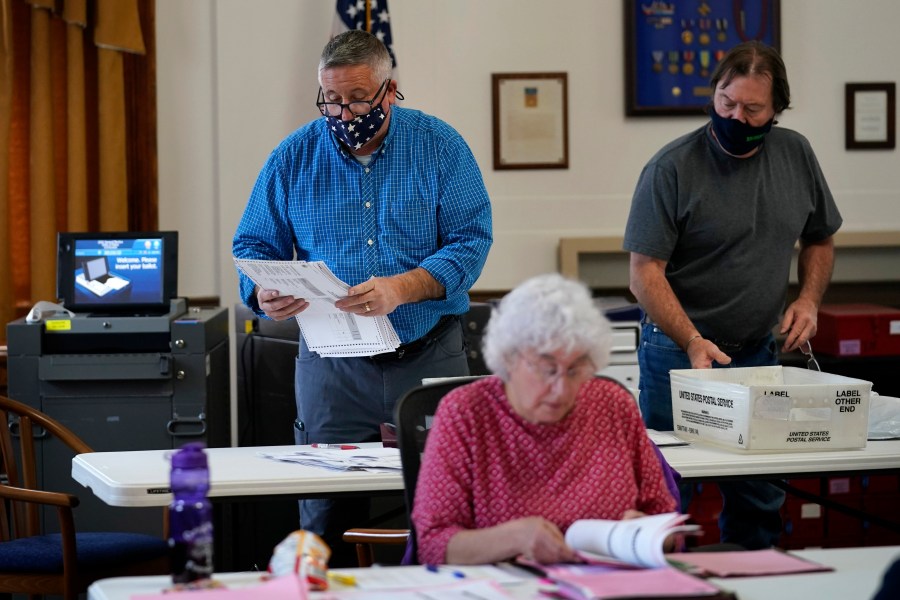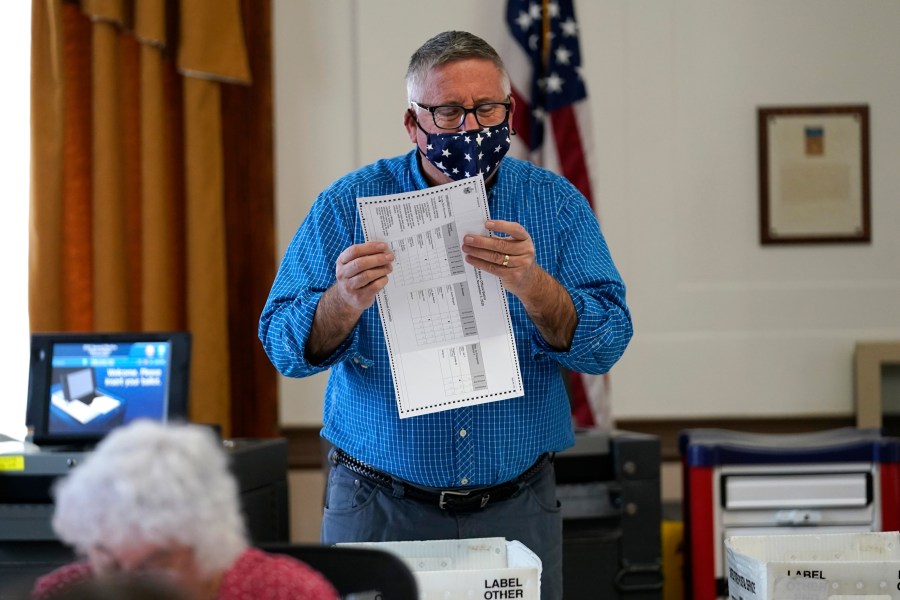Mainers to use ranked voting for president for first time
PORTLAND, Maine (AP) — A historic election is taking place in Maine, where voters are using a ranked choice voting system to determine the state’s electoral votes for the first time in U.S. history.
Voters are able to rank Republican President Donald Trump, Democratic nominee Joe Biden, Libertarian nominee Jo Jorgensen, Green nominee Howie Hawkins and Alliance nominee Roque “Rocky” De La Fuente on Tuesday. The ranked votes will come into play if no candidate cracks 50% of the statewide vote.
Maine has four electoral votes — a small number, but enough to make a big difference in a close election. The statewide vote is worth two, but Maine is also one of two states that apportions electoral votes by congressional district, worth one each. The 1st Congressional District is heavily Democratic, but Trump won the 2nd Congressional District by a wide margin in 2016.
Election Day looks different in Maine this year because of the coronavirus pandemic, and many in Maine have already voted. More than 500,000 Maine voters have requested to vote by absentee ballot in this election, which is a state record, Maine Secretary of State Matthew Dunlap said.
The state has run ahead of most of the country in terms of use of absentee ballots. The volume of absentee ballots cast by late October was more than a third of Maine’s 2016 turnout, while nationally it was equal to about a quarter of the 2016 turnout.
“If there’s one thing that people can agree on, advocates of the progressive left or the far right, I think they agree the stakes are incredibly high in this election,” said Mark Brewer, a political scientist at University of Maine.
Ranked choice voting, approved by Maine voters in 2016, is often called an “instant runoff” since the goal is to achieve a majority winner without a second, runoff election.
But there’s nothing instant about the process in Maine. If there’s no majority winner, then all of the ballots will be shipped to Augusta and entered into a computer for additional tabulations. That process takes about a week.
The views on ranked choice voting have become partisan in Maine, especially after the election in 2018, when Republican U.S. Rep. Bruce Poliquin was ousted in Maine’s 2nd Congressional District under the system, even though he had the most first-round votes.
The Maine Republican Party launched a petition drive aimed at stopping the expansion of the voting system to the presidential contest through a “People’s Veto” referendum. The GOP then unsuccessfully sued after coming up shy of the necessary signatures, and was rejected twice by the Maine Supreme Judicial Court and once by the U.S. Supreme Court. The final rejection came after the first votes already had been cast.
Also on the ballot Tuesday is a high-profile senate race featuring Republican incumbent U.S. Sen. Susan Collins, Democratic House Speaker Sara Gideon and independents Max Linn and Lisa Savage. Ranked choice voting could come into play in the multi-candidate race.
Democratic incumbent U.S. Rep. Chellie Pingree is also defending her 1st Congressional District seat against Republican Jay Allen, while Democratic U.S. Rep. Jared Golden faces former state Rep. Dale Crafts, a Republican, in the 2nd Congressional District.
Maine is the only state to approve ranked voting for statewide races, and its constitutionality has twice been upheld by a federal judge in Maine. It was used for the first time in U.S. House and U.S. Senate races in 2018 in Maine. But it isn’t used in state gubernatorial or legislative races because of concerns that it runs afoul of the Maine Constitution.













